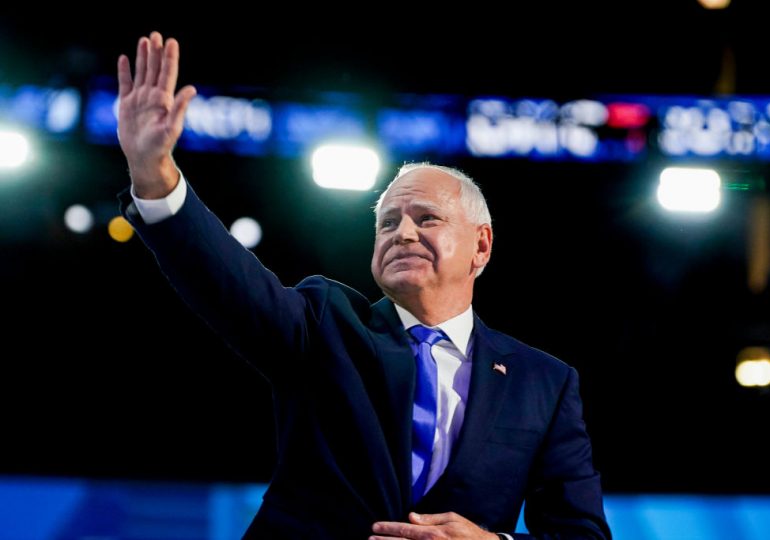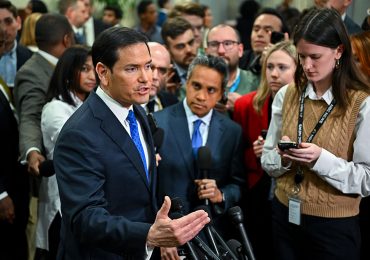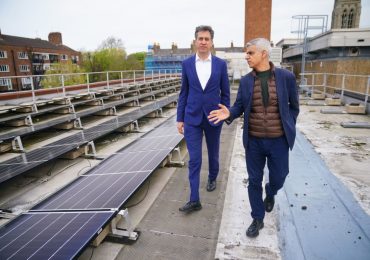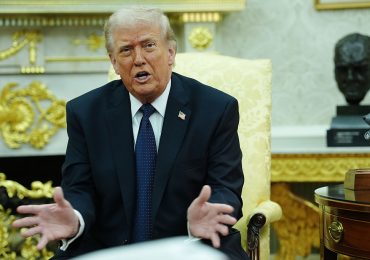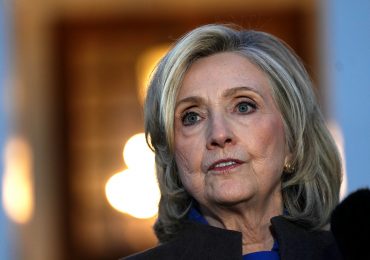This article is part of The D.C. Brief, TIME’s politics newsletter. Sign up here to get stories like this sent to your inbox.
If there were doubts why Kamala Harris tapped an upper-Plains State Governor who 7-in-10 Americans recently held zero opinion of as her running mate, his speech before tens of thousands of Democrats late Wednesday indicated why he made the cut.
[time-brightcove not-tgx=”true”]
Inclusive, at times post-partisan, and persistently exuding common-sense with the best of the Midwest’s offerings, Minnesota Gov. Tim Walz’s turn at the Democratic convention showed that Harris considered the broadest field in picking perhaps the darkest of horses to join her at the top of the ticket. A former state champion football coach and a senior National Guardsman, Walz as the VP pick is the avatar of the kind of national security liberal that liberals have been seeking for more than two decades, one who is at ease conveying to the country that a strong defense is not the providence solely of Republicans and that Democrats, too, know how to aim and fire a gun.
“Look, I know guns. I’m a veteran. I’m a hunter. And I was a better shot than most Republicans in Congress, and I’ve got the trophies to prove it,” Walz said in Chicago.
The efficient, conversational speech came as a capstone to a whirlwind reboot of the Democratic ticket. Given a free hand to restage the next steps for her Democratic Party, Harris chose to go with a plain-spoken former high school teacher as her running mate, a move that seemed as sage as it was savvy when Walz took the stage at the end of Wednesday’s session at Chicago’s United Center.
“Kamala Harris is tough. Kamala Harris is experienced. Kamala Harris is ready,” Walz said, filling the running mate’s top job as the boss’ hype machine. “Our job is to get in the trenches and do the blocking and tackling.”
Since President Joe Biden bowed out four weeks ago, Democrats have seen a resurgence of not just hope but of fight. The map to 270 electoral votes has been remade with the first woman of color as the party’s presidential nominee, with Walz in position to help hold the Bidenesque coalition in the so-called Blue Wall states.
From the opening moments of this convention, it was clear Democrats knew they had a short runway to introduce their understudy and were going to lean on every shorthand they could find. “Let’s vote for our MVP, Kamala Harris, and our coach, Tim Walz,” Democratic National Committee Chairman Jamie Harrison said Monday as he opened the proceedings.
Whereas past VP nominees—a former Vice President in Al Gore, incumbent Senators in Joe Lieberman, Biden, Tim Kaine, and Harris—were well known in Washington green rooms, Walz was hardly the familiar face in Washington. While Walz served in the U.S. House, few Democratic activists understood him to be a future face for the party. That’s why Walz’s introduction on a national stage in recent weeks mattered more than most meet-cute sessions playing out on C-SPAN.
In his biggest moment until he debates his GOP counterpart J.D. Vance, Walz seemed to nail it. At moments, it was plenty clear that Walz could make inroads to moderates and conservative voters who mightn’t be entirely on-board with Harris. He threw a few dings at Republicans’ agenda and showed himself a capable hatchet-man for Harris. But he also carefully came off as anything but a partisan, which is far from the role Vance, a first-term Senator from Ohio, has crafted for himself.
“I learned how to compromise without compromising my values,” Walz said, pitching himself as a figure who couldn’t be pegged as a hack.
But for Democrats needing a nudge to staff the campaign field offices in the exurbs and bedroom communities they so often skip, Walz had an equally calibrated measure. If Democrats were looking for an affable dad in their kids’ carpool, they seem to have struck gold in Walz.
To be sure, few voters decide how to act in the voting booth based on the running mate. No one decided to oppose Hillary Clinton in 2016 because they thought Kaine was objectionable and even fewer found reason to reject Mitt Romney in 2012 because he opted to move then-Chairman Paul Ryan into his back-up plan. The only way the VP pick matters is if it’s botched. See Sarah Palin, 2008.
Walz, a similarly unknown Governor with a back-bench resume, could fit that mold. Both, of course, nailed their national introductions at upper-Midwest conventions. But, to this brief point, there is little reason to think Walz comes as untested as Palin, or carries as much potential for self-implosion. Instead, Walz seems entirely comfortable—if cornily so—in his own persona as the Dad Next Door who never found a cliche he didn’t find useful as a proxy for his feelings. “There’ll be time to sleep when you’re dead” and “mind your goddamn business” both found their way into his text on Wednesday.
But amid the tropes that “the government stays the hell out of your bedroom,” he also brought sufficient fire to keep the Democratic base fired up without alienating the centrist core that is this nation. Right on pitch, Walz noted that as Governor, he made sure all students in Minnesota had a free breakfast and lunch. “While other states were banning books from schools, we were banishing hunger from ours,” Walz said to applause in Chicago.
A simple message, sure. But with the undercard role, it’s often best to keep it that way—especially when the top of the ticket seems to be doing so well.
Make sense of what matters in Washington. Sign up for the D.C. Brief newsletter.
Leave a comment
